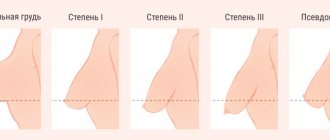Carbohydrates are to endurance athletes what protein is to bodybuilders. They are indispensable if you want to demonstrate the maximum of your capabilities.
Although it has been around for over half a century, a new wave of athletes have been experimenting with low carbohydrate intake during training and competition (the concept of adapting to the use of fat for fuel). This concept, coupled with the popularity of low-carb diets, has led many people to question the role of carbohydrates in their diet.
With this in mind, this article aims to reassure many of them and point out the cumulative benefits of consuming carbohydrates during endurance activities.
What are the benefits of carbohydrates for endurance athletes?
Those who develop endurance often train and compete at high VO2max (75-90% VO2max). Because all this happens at the limit of aerobic metabolism, and even beyond it; fat oxidation cannot meet the energy needs of contracting muscles.
In view of this, carbohydrates are primarily used as fuel, either extracted from the muscles (they are there in the form of glycogen), or consumed during sports in the form of sports drinks or carbohydrate gels, or both.
The usual amount of glycogen stored in the liver (which can vary depending on factors such as the degree of training and the level of lean muscle mass) is 100g. At the same time, the glycogen reserve in muscles varies from 300 to 500 g. All this can give you 1600-2400 kcal of energy until these reserves run out.
Exhausted Supplies
Glycogen is depleted in the thigh muscles after 90-120 minutes of continuous work at 65-75 VO2max. After this, you will feel very tired and will have to slow down (many of you are familiar with the phenomenon of the so-called “hitting the wall”).
If this is the case, endurance trainees must ensure that their glycogen stores are sufficient for the amount of work that needs to be done to perform at their best.
Increased performance in a separate lesson
Carbohydrates
Due to the fact that carbohydrates are used as the primary source of energy during resistance exercise, it has been hypothesized that consuming carbohydrates before and/or after exercise will increase the total amount of work performed during exercise (17, 23, 24). The assumption was based on the fact that muscle glycogen is depleted during resistance exercise, while at the same time the intensity and subsequently the total volume of work (measured by multiplying the amount of weight lifted and repetitions performed) decreases.
Experiments have shown a decrease in skeletal muscle glycogen after resistance training (Figure 1) (26, 31, 44). Despite this glycogen depletion, most studies of pre-exercise carbohydrate consumption have not found an increase in resistance exercise performance (15, 23, 24). While a limited number of studies have reported increased performance when consuming carbohydrates before exercise (16), it should be noted that the training was non-specific (16 sets of lower body exercises performed in an isokinetic dynamometer) and did not resemble a “regular” sports and recreational training program .
Rice. 1. Muscle glycogen depletion after sets 1 and 3 of forearm curls (26).
Proteins/amino acids
The oxidation of proteins (amino acids) to meet energy needs is negligible compared to carbohydrates and fats. Of the 20 amino acids, only 3 are oxidized to provide energy for exercise - branched chain amino acids (BCAAs - leucine, isoleucine and valine). Even when BCAAs are oxidized, their level of oxidation for energy supply is lower than that of fats and carbohydrates (22). According to the published abstract of the study (9), men received BCAA 40 mg/kg body weight 30 minutes before and immediately after lower body exercise (i.e., 80 mg BCAA per kg body weight). Exercises: leg press and, after it, shin extensions, were performed until fatigue in 4 approaches with an intensity of 80% of RM (one-time maximum). The authors reported that BCAAs had no effect on exercise performance. Due to limited oxidative participation during exercise and inability to improve performance, amino acids do not need to be consumed prior to resistance training, which does not preclude a possible positive effect on performance in the next session.
Carbohydrate and protein intake
Consuming protein or carbohydrate alone does not have a beneficial effect on resistance training. An experiment at the University of Texas led by Ivy examined the effects of combining carbohydrates and protein on resistance exercise performance (2). The subjects, naive men, performed 3 sets of 8 repetitions until exhaustion on 7 exercises for the upper and lower body. The supplements consumed were an artificially sweetened electrolyte solution (placebo) or a drink containing a mixture of carbohydrates and proteins (4:1 ratio) according to the following scheme:
- 30 pre-exercise: 26 g carbohydrate and 6.5 g whey protein or placebo
- Immediately before exercise: 13 g carbohydrate and 3.2 g whey protein or placebo.
The total amount of carbohydrates and protein consumed within 30 minutes before exercise in the experimental group was 39 and 10 g, respectively. Resistance exercise performance was measured by counting the amount of weight lifted in the third set performed to failure on each of the 7 exercises. No significant differences were found in both the supplement (534 ± 19 kg) and placebo (556 ± 22 kg) groups (2).
To summarize, consuming carbohydrates and proteins separately, or consuming them together before exercise, does not appear to improve resistance training performance in terms of total weight lifted. Opposite results are observed for protein and carbohydrate intake in relation to short- and long-term adaptations. Both of these aspects will be discussed below.
How many carbohydrates do you need?
Although the optimal dosage varies from person to person and depends on the athlete's size and amount of work performed, endurance athletes are advised to consume 7-10 grams of carbohydrates per kg of body weight, which is about 60-70% of their total daily energy expenditure.
For those of you who like to run, but don't do it as much as advanced runners, you should start with 4-6 grams of carbohydrates per 1 kg of body weight. In the future, this dose can be adjusted to suit your current requirements.
To achieve these recommendations, you need to consume carbohydrates at the correct times, which will be indicated below.
Effects of carbohydrates
Productivity increase
Once the number of reps and sets with each workout starts to add up, your body's ability to recover between each set begins to decrease. When this happens, the body's performance will also decrease.
If you are currently able to perform a certain training volume, then over time this volume will definitely begin to creep down, which can jeopardize muscle gain.
Consuming carbohydrates during exercise helps provide a quick, accessible source of fuel that will keep your body's energy levels high for subsequent workouts. Instead of stopping short or having to reduce weight, you will be able to continue working hard.
Having readily available energy in the form of carbohydrates will help you do more total work, which is beneficial for both muscle gain and strength gains because total volume is what drives growth.
Reduced mental fatigue
Carbohydrates are not just a preferred source of energy for muscles; they also nourish the brain. Mental preparation, focus, and awareness of technique are critical for any exercise, especially heavy multi-joint movements. Low energy levels can lead to clouded focus and reduced ability to perform the exercise safely, causing failure or injury.
By taking carbohydrates during very hard or long workouts, you can provide a constant source of fuel for your brain, which can help you avoid the pitfalls of mental exhaustion.
Prevention of catabolic processes
Consuming carbohydrates during long training sessions can also curb the increase in cortisol concentrations both during exercise and for several hours afterward. By limiting the catabolic effects that cortisol can cause and reducing muscle damage, you'll be able to recover faster and get ready for tomorrow's workout.
Read also: What is the difference between simple and complex carbohydrates.
Improved body composition
When carbohydrates are consumed during exercise, they are effectively used for both energy and recovery, leaving little chance for them to be stored as fat. Just remember that you still need to count the carbohydrates you consume during your workouts into your total daily intake.
Carbohydrates before workout
The purpose of eating before endurance training is to maintain the required blood glucose levels to conserve glycogen.
The pre-training period, in turn, can be divided into 3 stages:
- Days before training
- 2-4 hours before training
- Last hour before training
Pre-workout days (carb loading)
There are several popular strategies for maximizing your glycogen stores. The most popular of them is carbohydrate loading. This technique is used to end up storing more glycogen than normal (supercompensation).
Typically, this involves depleting glycogen stores for 3-4 days through exhausting training, followed by 3-4 days of carbohydrate loading (500-600 grams of carbohydrates per day) with a reduced volume of training. However, linear loading with carbohydrates (10-12 grams of carbohydrates per 1 kg of body weight for 1-7 days) appears in studies to be a more effective loading method. It is worth mentioning that carbohydrate loading will not affect the effectiveness of exercises lasting less than 90 minutes (given that the athlete initially had sufficient glycogen reserves), with the exception of interval, high-intensity exercise.
2-4 hours before training
According to research results, it is recommended to consume approximately 200-300 grams of carbohydrates 3-4 hours before training, if their intake during the training itself is not possible. The glycemic index of carbohydrates in this case does not matter - eat what you like best!
An hour before training
Since many people train in the morning before work, the recommendation to eat 2-4 hours before training is not feasible for them. In this case, I recommend taking 30-60 grams of carbohydrates, preferably in powder form (sucrose, glucose, instant oatmeal, maltodextrin, etc.), which you can mix with a protein shake.
The meaning of fast carbohydrates
Let's discuss the question that interests us most: fast carbohydrates - what is it for an athlete. Despite the fact that many are skeptical about eating sweets, fast carbohydrates have a place in professional sports. However, you need to clearly understand how simple carbohydrates differ from complex ones, and how to use them correctly in sports.
Simple carbohydrates are great for filling the glycogen window that occurs immediately after finishing a workout.
At the same time, fast carbohydrates are also used to control dopamine levels. Excess energy affects our body no less than caffeine-containing drinks. Fast carbohydrates help improve your emotional state. It is no coincidence that many people, after serious nervous shocks, are drawn to any endorphin and dopamine stimulants (alcohol, nicotine, sweets).
Sweets are much more suitable for restoring the emotional background. We must not forget about the fact that if you have time to waste all the energy that was gained in the process of absorbing sweets, you will not receive any harm from them (source - Borisova O. O.’s monograph “Nutrition for athletes: foreign experience and practical recommendations”).
That is why athletes whose sports involve long-term endurance consume carbohydrate mixtures directly during training or competition.
The simplest example: marathon athletes and many crossfitters who, without adhering to strict diets, do not deny themselves sweets.
Carbohydrates during exercise
The nutritional goals during endurance training are the same as before training—to maintain adequate blood glucose levels to conserve glycogen stores.
- For workouts longer than 90 minutes, I recommend 30-60g of carbohydrate per hour in the form of a sports drink or carbohydrate gel.
- For workouts lasting more than 3 hours, 60-90g of carbohydrates (per hour) will be the golden mean. For such high dosages, the use of carbohydrates such as glucose and fructose is recommended for better absorption and to minimize the risk of gastrointestinal upset.
Types of carbohydrates[edit | edit code]
Types of carbohydrates Classification by digestibility
Carbohydrates are divided into:
- Simple carbohydrates or sugars: mono- and disaccharides
- Complex carbohydrates: oligo- and polysaccharides
- Indigestible, or fibrous, carbohydrates are defined as dietary fiber.
Sahara
There are two types of sugars: monosaccharides and disaccharides. Monosaccharides contain one sugar group, such as glucose, fructose or galactose. Disaccharides are formed by the residues of two monosaccharides and are represented, in particular, by sucrose (common table sugar) and lactose. Separately, we should mention the disaccharide isomaltulose, which is a slow carbohydrate and can serve as a harmless sugar substitute.
Complex carbohydrates
Polysaccharides are carbohydrates containing three or more molecules of simple carbohydrates. Polysaccharides include, in particular, dextrins, starches (amylopectin, amylose, inulin), glycogens and celluloses. Sources of polysaccharides are cereals, legumes, potatoes and other vegetables.
Read more:
Types of Carbohydrates - Food Sources
Metabolism of carbohydrates[edit | edit code]
Carbohydrate metabolism is represented by three types of processes:
- glycogenesis, that is, the synthesis of glycogen from glucose;
- gluconeogenesis, the process of formation in the liver and renal cortex (about 10%) - glucose, from amino acids, lactic acid, glycerol
- glycolysis, that is, the breakdown of glucose and other sugars to release the energy necessary for the body.
Carbohydrate metabolism is largely determined by blood glucose, that is, the presence of carbohydrates in the bloodstream. This in turn depends on the timing and nutritional composition of your last meal. In principle, the level of glucose, or sugar, in the blood is minimal in the early morning hours after a usual seven to nine hours of sleep, during which you did not maintain the level of glucose in the blood with new portions of “fuel”.
The body's own supply of energy in a state of post-absorption (fasting) is 75 percent due to glycolysis and 25 percent due to gluconeogenesis. Once you wake up, your body is in the best condition to use stored fat as an energy source. So the old advice of horseback riding early in the morning and on an empty stomach has lasting value.
Morning hours are the time of the most active natural production of catabolic hormones
. The highest nighttime concentration of somatropic hormone drops in the morning, and by 8-9 o'clock the catabolic hormone cortisol reaches its highest daily concentration.
Carbohydrates and insulin[edit | edit code]
Insulin is a hormone produced by the pancreas. Insulin surges are caused by an increase in blood glucose and amino acids. Insulin supports glucose metabolism as well as intermediary metabolism of fats and proteins. Insulin helps lower blood glucose levels, as well as transport and transport glucose and amino acids into muscle cells and other body tissues.
Carbohydrates after exercise
After training, you need to take in enough carbohydrates to replenish glycogen stores. Anything less will eventually lead to progressive depletion of glycogen stores workout after workout.
For this reason, it is recommended that endurance athletes consume 200-300 grams of carbohydrates in the hours following training (noting that this should fit within the recommendations for total daily carbohydrate dosage). High-glycemic carbohydrates (potatoes, rice, pasta) are known to replenish glycogen stores faster than low-glycemic sources.
Those who exercise less intensely can stick to carbohydrate sources that taste best to them.
Carbohydrates in sports[edit | edit code]
From oatmeal for breakfast to a baked potato for dinner, your body gets carbohydrates, its main nutritional fuel. During the digestion of food, the latter are converted into glucose. It circulates in the blood (also known as blood sugar) and is used by the brain and nervous system to produce energy. If brain cells are deprived of glucose, then mental activity weakens. And because the brain controls muscle function, you may feel weak and lethargic.
Glucose obtained as a result of the breakdown of carbohydrates is converted into glycogen - for storage in the liver (a third of its supply) and muscles (two-thirds of its supply). Once muscles begin to use glycogen, through a series of energy-producing stages, they again convert it into glucose.
It's no surprise that pasta, grain dishes (muesli, cereal), cereals, fruits, vegetables, sports drinks, nutrition bars and other sources of carbohydrates are favorite foods for athletes involved in endurance sports. To improve their results during competitions, they literally stuff themselves with carbohydrates. By the way, the latter are also necessary for strength athletes - in the right quantities, in combination with protein and fats. Glycogen, together with carbohydrates, is the main source of fuel for working muscles. When your carbohydrate stores run low, your muscles begin to get tired and heavy. Carbohydrates, especially when combined with protein and fat, are vital nutrients that stimulate your brain and muscles to perform strenuous strength training and build muscle mass.
When should you consume carbohydrates?
Now that you have established the amount of carbohydrates you intend to consume daily, you need to determine the timing of carbohydrate distribution issues that must be taken into account for maximum effect. The main times to consume carbohydrates to take advantage of the lean/anabolic properties of protein are in the morning immediately after waking up (because you haven't eaten for at least 6-8 hours, so cortisol levels are elevated), as well as the post-workout meal (highly glycated carbohydrates after exercise cause a spike in insulin, which pulls amino acids from the blood and delivers them to muscle tissue).
Another important point for consuming carbohydrates is 1-1.5 hours before training. However, pre-workout carbohydrates suppress lipolytic activity (the fat absorbed during exercise). However, this is normal, because if you have a calorie surplus, losing weight is almost impossible, unless you are a beginner weightlifter or have good genetics. Just check your glycemic index (a rating scale for how different forms of carbohydrates cause insulin to spike).
How much should you eat?
If you're a hard gainer and eat like there's no tomorrow to no avail, you can easily increase your calorie intake by adding more fat to your diet (remember, 9 calories per gram of fat, as opposed to 4 calories per gram of protein or carbohydrates ).
If you gain weight easily and your goal is muscle mass, think of carbohydrates as your fuel source and eat healthy fats and protein to get bigger. Here's an example based on some NSCA (National Strength and Conditioning Association) guidelines.
First, your weight gain goal should be 450 grams every 1-2 weeks for an intermediate weightlifter and the same amount every one to two months for an advanced lifter (the bulking period for a natural bodybuilder should be about 6 months). Based on my own experience in bodybuilding, I certainly agree with this (gaining weight quickly if you're natural is usually due to excellent genetics, fat storage, or water retention/increased muscle size).
Eating an additional 250 calories per day above what is burned (due to metabolism and physical activity) is also recommended for weight gain. A good bodybuilding workout typically burns around 300 calories, and this needs to be taken into account when athletes are trying to increase their caloric intake. Protein intake should be 1.4-1.8 grams per kilogram of body weight or 0.65 - 0.8 grams per pound.
Replenish your glycogen quickly
The main reason to consume carbs post-workout is to replenish the muscle glycogen you burned during your workout. When you exercise, your main source of energy is muscle glycogen. Glycogen is a storage form of glucose. It is built from long chains of glucose molecules with numerous branches.
Glucose is released from the glycogen chain as needed to produce ATP, which carries energy and is key for muscle contraction. Research confirms that the best way to replenish muscle glycogen stores after exercise is to consume high-glycemic (fast-digesting) carbohydrates as soon as possible.
RESEARCH CONFIRMS THAT THE BEST WAY TO REPLENISH MUSCLE GLYCOGEN AFTER EXERCISE IS TO CONSUME HIGH GLYCEMIC INDEX (FAST ABSORBING) CARBOHYDRATES AS SOON AS POSSIBLE.
Some "experts" believe that with regular strength training you don't burn enough glycogen to worry about replenishing it. I can only ask: “What?!” When you break down any amount of muscle glycogen, you must take care to restore it, especially if muscle growth is your main goal. If a trainer claims that people don't need to worry about glycogen replenishment, then their training is weak and at very low intensity, or they haven't looked at any research.
Research on glycogen utilization during strength training shows that workouts consisting of 6-20 sets and lasting approximately 15-30 minutes deplete glycogen stores by approximately 30-40 percent. Because my workouts are 60-90 minutes long, have you move quickly between exercises, and use high-intensity training techniques like cardio acceleration and Tabata, they will deplete your muscle glycogen by a good 60-75 percent.
Get serious about carb intake after your workout and replenish muscle glycogen. If you don't do this, you are cheating your muscles and limiting their recovery. In fact, delaying carbohydrate consumption by just 2 hours showed a 50 percent reduction in the rate of glycogen replenishment!
Some experts say this doesn't mean anything to most people in the gym because minimal evidence suggests that whether you consume carbohydrates immediately after exercise or two hours later, glycogen levels replenish on their own within a few hours. within 24 hours. Again, the evidence for this is very weak. What we do know is that the fastest way to replenish glycogen stores is to consume high-glycemic carbohydrates immediately after your workout.
Full restoration of your glycogen store levels as soon as possible after exercise is essential for growth. Glycogen stored in muscle cells attracts water into them. This increases the volume of the muscle cell and thus the fullness of the muscle fibers.
Considering that you pump up your muscles during exercise, which also increases the amount of water in your muscle cells and therefore their volume, quickly replenishing muscle glycogen can help you maintain high muscle cell volume over an extended period. This may be important because evidence suggests that greater muscle cell volume triggers changes in the muscle that lead to long-term muscle growth.
Another benefit of eating carbohydrates, especially high-glycemic carbohydrates such as dextrose, immediately after an intense workout is that you will feel energized. Carbohydrates can lift your sluggishness after a hard workout and give you energy. Plus, eating high-glycemic carbohydrates post-workout tends to satisfy cravings for sweet or starchy carbohydrates without negatively impacting your diet.
I often recommend gummy bears as a post-exercise carb, which most people find very tasty and filling. As an added bonus, these bears often help people cope with strict diets for the rest of the day.
Controversy over the role of insulin in muscle growth
Another benefit of high glycemic index carbohydrates is the insulin release they provide. While insulin is classified as an anabolic hormone, its role in the process of muscle growth is now often debated. Although it was once considered a critical factor in initiating muscle protein synthesis and reducing muscle tissue breakdown, some evidence suggests that insulin is not critical for muscle growth. Delivery of sufficient amino acids to muscle cells from protein appears to be most important.
Only recently did scientists compare consuming post-workout protein alone to consuming post-workout protein and carbohydrates together. This study shows that adding carbohydrates to a protein shake does not increase muscle protein synthesis or reduce muscle protein breakdown any more than any other protein-only shake.
But insulin is still important immediately after exercise. Insulin attaches to specific receptors on muscle cells. When this happens, it allows glucose, amino acids, as well as carnitine and creatine to enter muscle cells. In fact, research shows that both carnitine and creatine depend on insulin to be able to enter muscle cells to produce beneficial effects.
Since you must take these two supplements post-workout, you will want to get the maximum spike in insulin in your blood if your main goal is gaining muscle mass. As mentioned above, this does not apply to diet periods when carbohydrates should be limited, including after a workout; in this case, protein shakes and BCAAs will provide the necessary spike in insulin to direct these supplements to the muscles.









